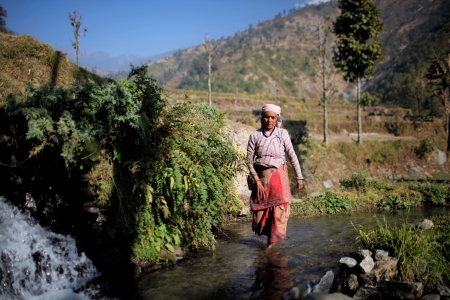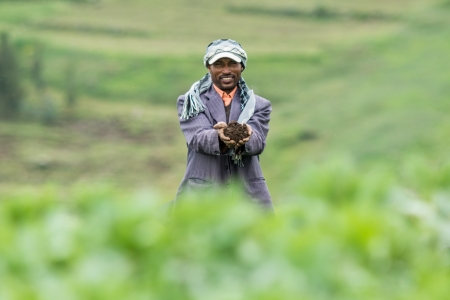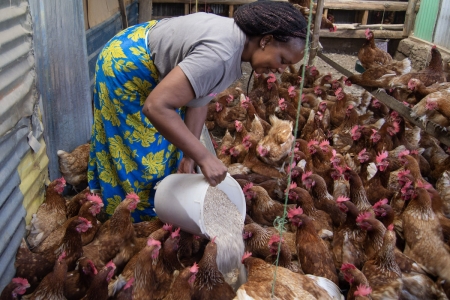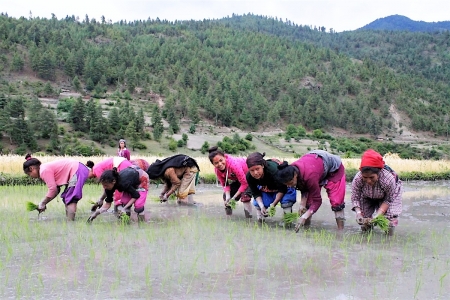We may have moved some way from the technocratic management of natural resources. But, more often than not, interventions that address gender issues, simplistically interpreted as being about women, are adopted without considering complex realities on the ground. International Women's Day provides an opportunity to challenge and disrupt conventional ways of approaching gender in natural resources research for development.
From management to governance
In recent decades, there has been growing acceptance that natural resource management (NRM) interventions are inherently shaped by political and economic interests, and not necessarily about inclusive or sustainable ways to manage our water, forests and land. This explains why environmental degradation has persisted despite the increasing number of conservation and environmental restoration initiatives.
A critical shift in thinking on natural resources came about through the understanding that a plurality of informal rules, regulations and arrangements determine how local communities negotiate resource use. By recognizing this and thinking differently about the governance of natural resources we can ensure that communities are not just beneficiaries of top-down NRM interventions, but active participants that analyze problems and identify and implement solutions.
Gender is not just about women
Rethinking the governance of natural resources has had important implications for women, but not all of it has been positive. Women are now more likely to be consulted in the course of interventions, encouraged to form collectives, and incentivized to secure formal rights and titles to natural resources. But even with the best intentions, project interventions mostly fail to take account of two key facts. Firstly, the ways in which women are engaged might reiterate, rather than transform unequal gender norms, roles and identities. Secondly, access and rights to natural resources, and how they are used, are determined by complex intersectional inequalities.
Without tackling the structural frameworks of gender-power disparities, engaging women might not go very far in achieving transformative change. In Colombia, for example, the ongoing formalization of land tenure is overshadowed by traditional divisions of labor between women and men involved in coffee agroforestry, meaning men are still more likely to take the important decisions. In Kenya, the success of certain community groups in mobilizing local investment for water systems came about not just because of the participation of both women and men, but because their interests overlapped within relations defined by reciprocity, trust and social cohesion -- a coming together that may be threatened by commercialization of water supplies.
Research to challenge development
Over the years, research conducted by CGIAR Centers, addressing the nexus between agriculture and natural resources, has brought women's agency and empowerment into the frame. Interrogations of NRM interventions have made visible the gendered dynamics of natural resources access, use and management. But has this been enough? Across Research for Development institutions, gender and the environment (or natural resources) still tend to be treated as distinct and parallel agendas. NRM strategies and policies continue to be informed by overtly simplistic understandings of 'nature' as an economic resource and 'gender' as being mostly 'about women'. Even the notion that women are 'closer to nature' is part of a process of simplification that erases the complexities of gender relations and shoulders women with the burden of 'saving' the environment.
The launch of the UN Decade on Ecosystem Restoration, the success of which depends on the actions of women and men, and the One CGIAR strategy, which includes Gender Equality, Youth and Inclusion as one of five impact areas, complements the theme of this year's International Women's Day, Choose to Challenge. We respond to this call by choosing more rigorous and robust feminist political ecology approaches that rethink the governance of natural resources and nature-based solutions. In line with the One CGIAR goal to 'build forward better', we need to rethink the political economy of NRM strategies that maintain gender imbalances, disrupting them to create more equitable, resilient and sustainable food systems. Bold change agendas are needed to achieve the 'transformative' goals of the Sustainable Development Goal agenda. The COVID-19 pandemic has made it evident that without inclusion and equality we will always fail. In the face of dynamic social, economic, political and ecological crises, addressing gender requires a critical analysis of power, politics and difference in ways that allow a rethinking of natural resource governance, institutions, policies and narratives at scale. Within the CGIAR, this starts with looking inward at our own institutions, research initiatives and agendas. A feminist political ecology approach that seeks to fix the system rather than fix women, and which chooses to challenge for change, is the way forward.
---
Thrive blog is a space for independent thought and aims to stimulate discussion among sustainable agriculture researchers and the public. Blogs are facilitated by the CGIAR Research Program on Water, Land and Ecosystems (WLE) but reflect the opinions and information of the authors only and not necessarily those of WLE and its donors or partners.
WLE and partners are supported by CGIAR Trust Fund Contributors, including: ACIAR, DGIS, FCDO, SDC, Sida and others.




%5b2%5d/index.jpg?itok=cmTC-WgA&c=feafd7f5ab7d60c363652d23929d0aee)















